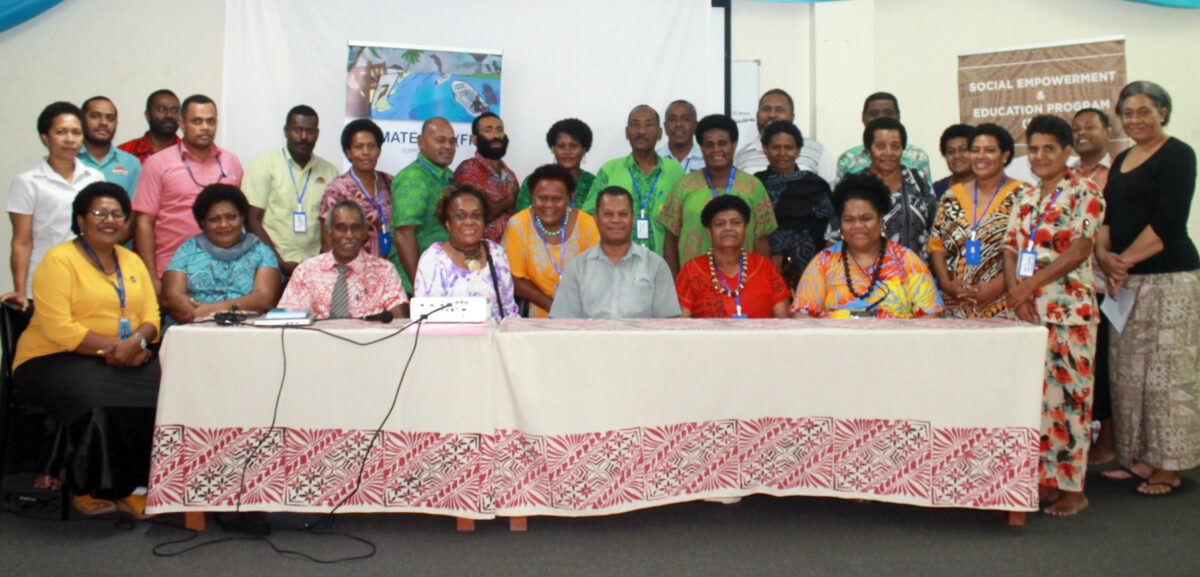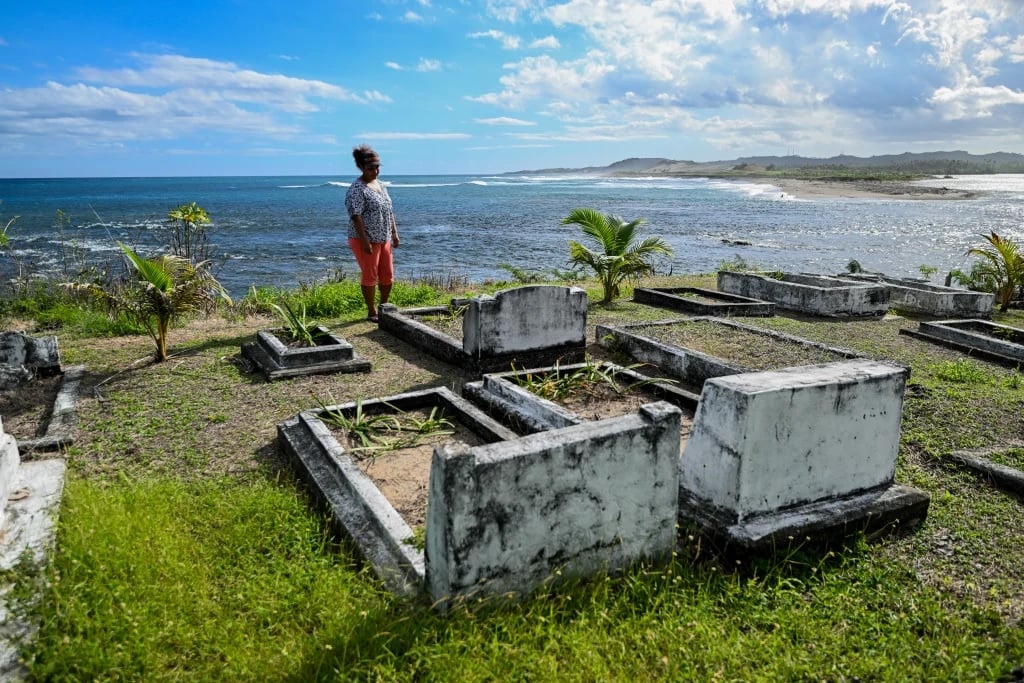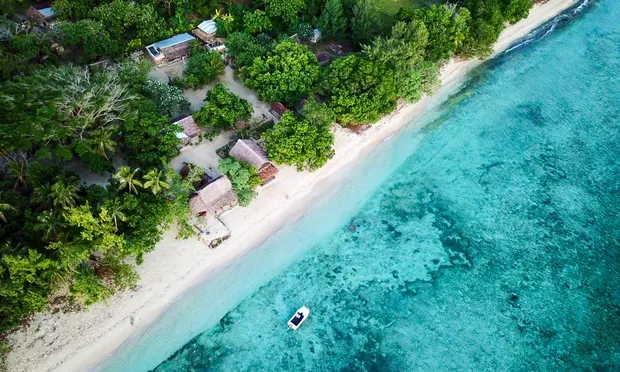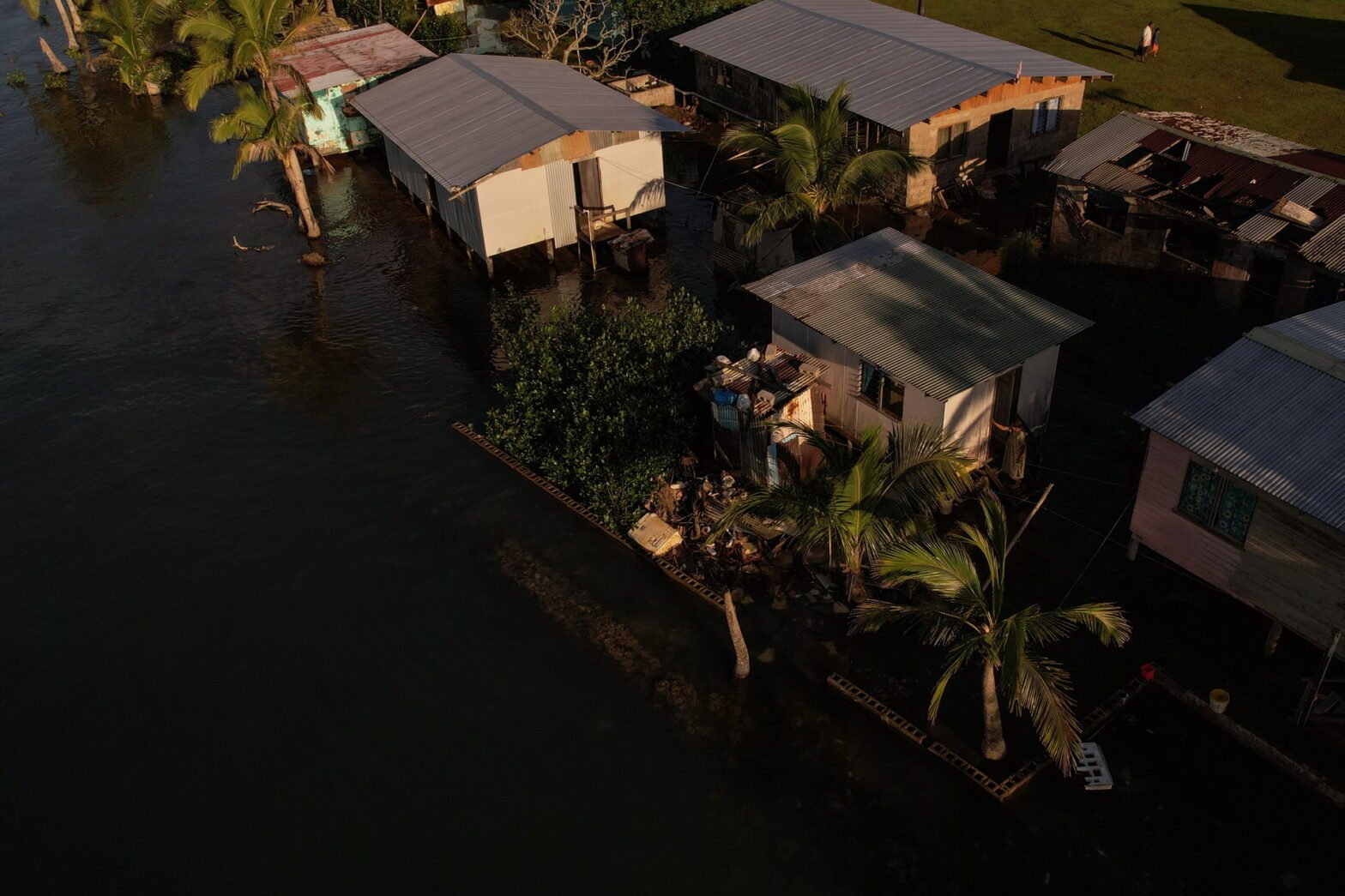Vulnerable rural communities in Fiji strengthen their understanding of the impacts of climate change and “loss and damage”
Leaders representing rural communities vulnerable to the impacts of climate change strengthened their understanding of “loss and damage” recently, in relation to their lived experiences and traditional worldviews.
The CLIMATE-TOK Community Representatives Convening on Climate Forced Displacement and Relocation was attended by some 20 community representatives from Ba (Tukuraki, Namoli), Bua (Cogea and Saolo), Cakaudrove (Vunidogoloa, Vunisavisavi), Macuata (Nabavatu), Kadavu (Narikoso), Nadroga (Namatakula), Ra (Barotu, Nadogoloa), Lomaiviti (Mudu, Nabuna, Nasau), Tailevu (Nasautoka), and Rewa (Dakuni).
Lived experiences and emerging issues from climate displacement and relocation were shared between community representatives who had either led their relocation and those who were preparing to relocate.
Participants were updated on the Standard Operating Procedures (SOPs) of the Planned Relocation Guidelines (PRG). Other areas covered by the gathering included the link between the impacts of climate change and traditional knowledge, and relevant land laws.
Loss and Damage is a key negotiation strand in ongoing climate change negotiations under the United Nations Framework Convention on Climate Change (UNFCCC) Paris Agreement.
“The meeting was richer from the valuable reflections and weaving of traditional knowledge, wisdom and leadership, especially from keepers of tradition in our communities,” Makereta Waqavonovono, coordinator of Climate Tok.
The consultation was held at the Jovili Meo Mission Centre at the Pacific Theological College (PTC), convened by Climate Tok with support from the Unitarian Universalist Service Committee (UUSC).
This story was written by Ariela Zibiah.




